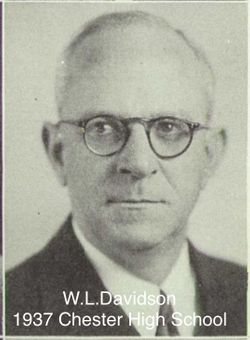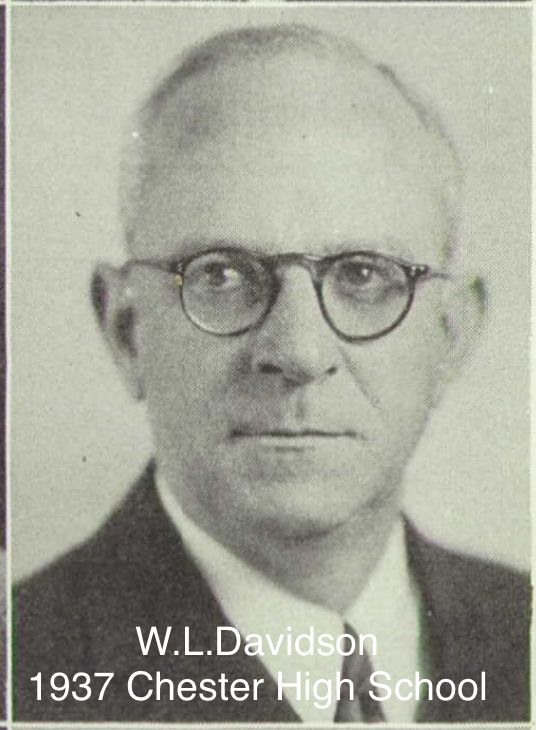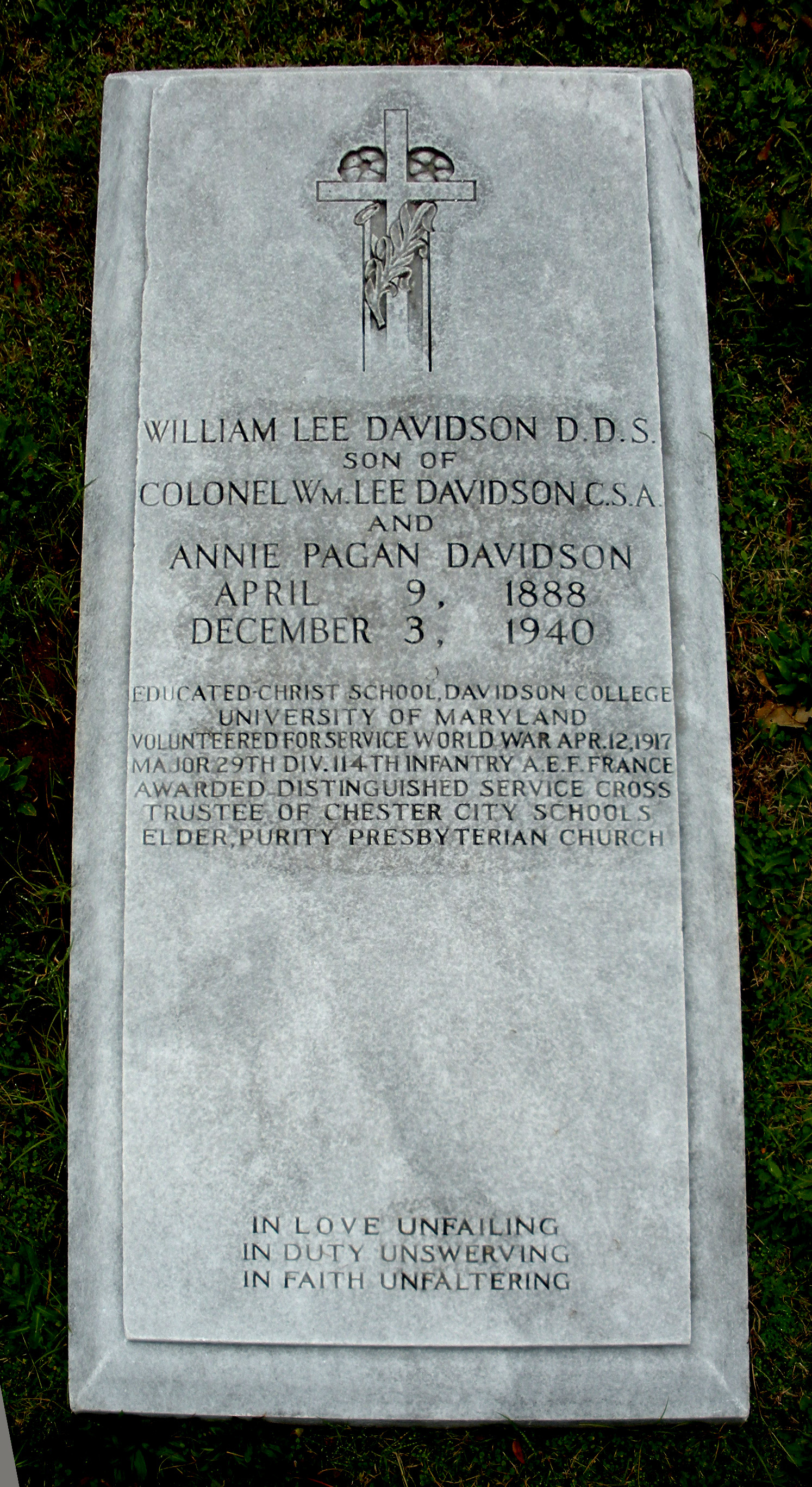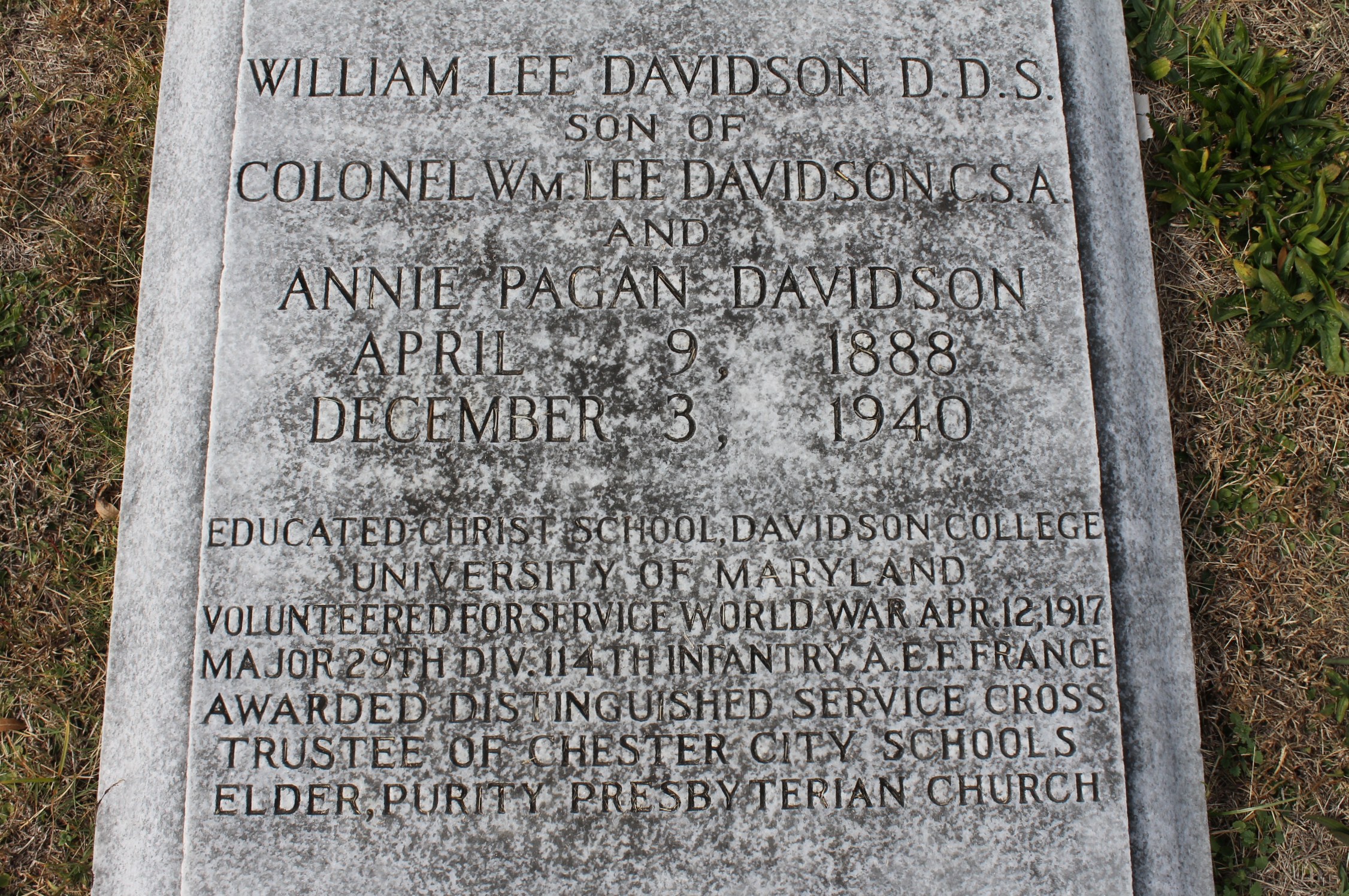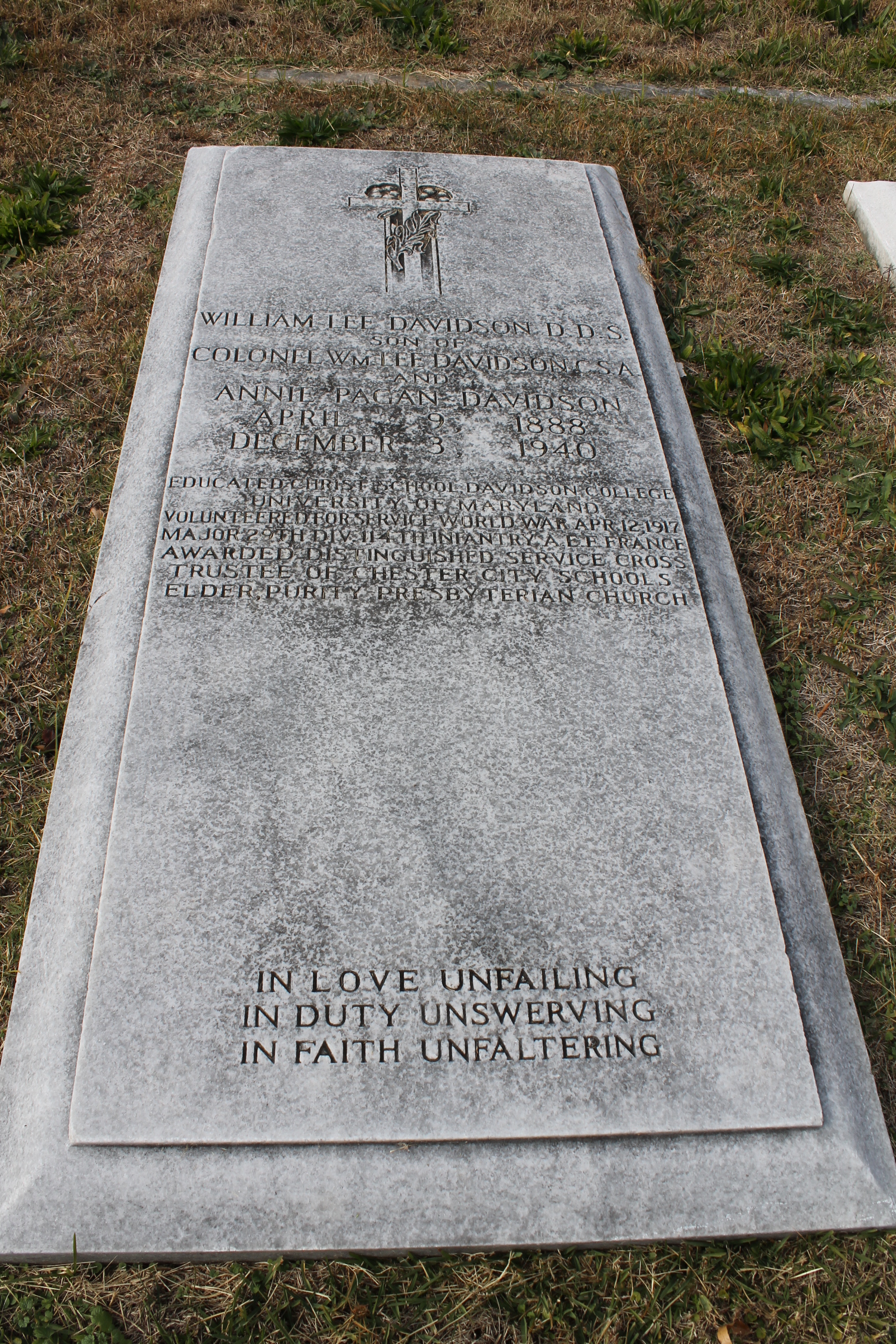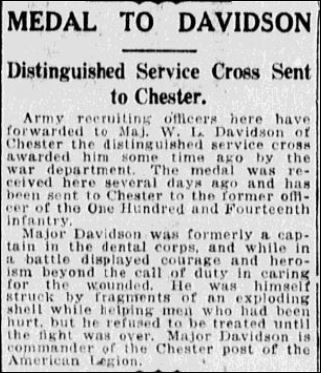He was awarded the Distinguished Service Cross for "...extraordinary heroism in action north of Verdun, France, October 12, 1918. Captain Davidson while attending wounded under heavy fire, was himself wounded by several pieces of shell fragments. Regradless of his own wounds he continued in his care of the wounded, refusing to be treated until his regiment was relieved from the line, when several pieces of shell were removed from his head and shoulders.”
Contributor: Kenneth Robison II
He was awarded the Distinguished Service Cross for "...extraordinary heroism in action north of Verdun, France, October 12, 1918. Captain Davidson while attending wounded under heavy fire, was himself wounded by several pieces of shell fragments. Regradless of his own wounds he continued in his care of the wounded, refusing to be treated until his regiment was relieved from the line, when several pieces of shell were removed from his head and shoulders.”
Contributor: Kenneth Robison II
Family Members
Sponsored by Ancestry
Advertisement
Explore more
Sponsored by Ancestry
Advertisement
